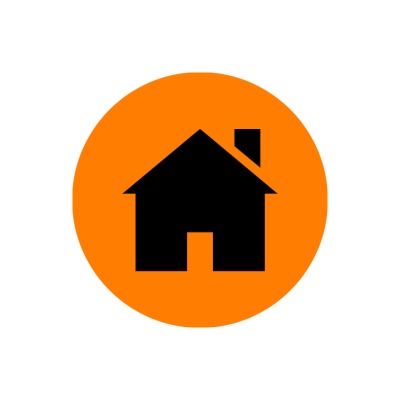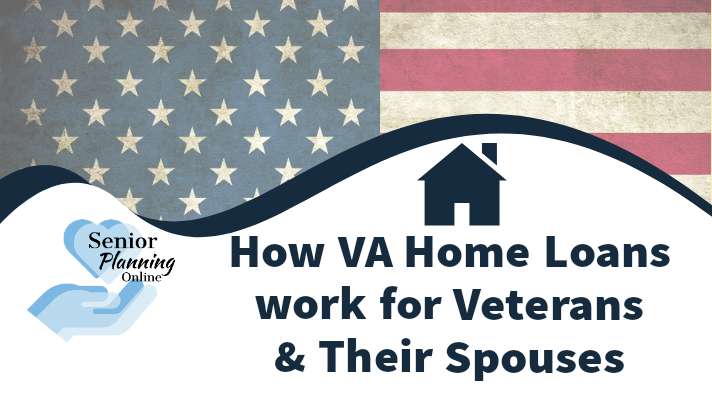There are Veterans who may be looking at buying a house and then there are also Veterans who are at a high risk of homelessness. The VA and other non-VA organizations work to serve Veterans in either of these situations.
The VA offers a couple of housing programs. The types of programs offered can vary by VA system. So you may need to locate your nearest VA and talk with a social worker or case manager for more information about specific housing programs.
Also, if you haven’t already, make sure to checkout my other posts:
6 VA Benefits You Can Receive as a Veteran
How Veterans Can Apply for Tax-Free VA Disability Compensation
Today I’m going to first go over the programs for Veterans looking to buy a house. Later I will address programs for Veterans who are at risk for homelessness in another post. So sign up for my Newsletter if you haven’t already so you can stay informed!

VA Home Loan & Assistance Programs
Most people have heard that they can get a VA home loan to buy a house. This is a common question especially since the housing market is so hot right now.
I think there is a misconception of what a VA home loan is and how to get one. So I’m going to go over this.
First of all, often people mistake a loan for a grant. Those are 2 completely different things.
A Loan- is money that you BORROW and MUST pay back, with interest
A Grant– is money that you are awarded for something specific and DO NOT have to pay back
The VA does not offer Home Grants. They are strictly loans.
What are the Advantages of a VA loan?
So a VA loan is really a VA-backed home loan. Meaning, the VA serves as a guarantor or co-signer for a part of your home loan. You still have to get a loan from a VA approved lender. And you still have to make mortgage payments to that private lender.
However, lenders are more willing to provide a loan knowing that even if your loan goes into forbearance or foreclosure, the VA will still pay a portion of that loan to the lender.
Another benefit of getting a VA-backed home loan is typically you don’t have to have a down payment for the home. Again, this is because the VA is guaranteeing that a portion of the loan you are taking out will be paid for by the VA if something happens.
VA Funding Fees
You may still have to pay a down payment, but the down payment you do make is significantly less than the 20% private lenders require.
Although you don’t have to pay the 20% down payment, you still have a VA funding fee. This fee helps lower the cost of the loan since down payments or monthly mortgage insurance is not required for a VA loan.
It’s a one time payment, and you can either pay it in full at once at closing, negotiate who will pay that fee with the seller, or you can finance it and include it in your monthly mortgage payments.
The rate of the VA funding fee you pay depends on the amount you plan to put as a down payment.
If this is your first time getting a VA home loan, see the chart below to find out how much your funding fee is:
Your Down Payment (% of the home loan) | VA funding fee you will pay |
0 to 5% | 2.3% |
5% to 10% | 1.65% |
10% or more | 1.4% |
If this isn’t your first time getting a VA home loan, the chart below contains your rates:
Your Down Payment (% of the home loan) | VA funding fee you will pay |
0 to 5% | 3.6% |
5% to 10% | 1.65% |
10% or more | 1.4% |
You may not have to pay the VA funding fee at all if you meet the following criteria:
- You are receiving VA compensation for a service-connected disability
- You are receiving military retirement or active-duty pay, but are eligible to receive VA compensation for a service connected disability
- You are a service member on active duty who received the Purple Heart on or before the closing date of the loan
- You are a surviving spouse of a Veteran and are receiving Dependency and Indemnity Compensation (DIC)
Is it hard to get approved for a VA home loan?
Let’s talk about eligibility. If you are eligible for a VA loan, you’ll likely get one. Although a down payment is not required, it is encouraged as we previously discussed due to the VA funding fee.
To find out if your are eligible for a VA home loan, you will need to apply for a Certificate of Eligibility (COE).
You can apply for this certificate at Eligibility Requirements For VA Home Loan Programs | Veterans Affairs
After you receive a COE, you will need to find a lender that works with VA home loans. An easy way to find one is by contacting your Regional Loan Center Contact Information – VA Home Loans online or by calling 1-877-827-3702.
You will need the COE to provide the lender as proof of VA home loan eligibility.
Is a Surviving Spouse Eligible for a VA Home Loan?
A surviving spouse of an eligible Veteran can apply for a VA home loan as well. The spouse will need to apply for the COE as well.
You are eligible if you meet any of the following requirements:
- The Veteran was missing in action
- The Veteran is a prisoner of war (POW)
- The Veteran died while in service or from a service-connected disability AND you did not remarry OR you did not remarry until after you were 57 years old
- The Veteran had been totally disabled, and then died, but the disability may not have been the cause of death.
I Said The VA Does Not Offer Grants But….
Ok, so I mentioned earlier that the VA does not provide VA home grants. This is true in the sense that the VA does not give out grants for you to buy a house.
I have found that his is a common misconception people have. I have received countless calls from Veterans and families stating that they were told the VA gives Veterans free houses.
Oh my…..
This is definitely NOT true.
The VA provides home LOANS to help you purchase a house.
The VA has housing GRANTS, to help Veterans with a service-connected disability adapt their current house to meet their disability needs.
If a Veteran is eligible for a VA housing grant, this is free money given by the VA that MUST be used for widening doorways, installing ramps, and make handicap accessible changes.
This is called a Specially Adapted Housing grant or SAH.
There are requirements you have to meet to be eligible for this grant, and the current total maximum amount you can receive is $20,215 for FY 2021.
If you are an eligible Veteran but living in a family member’s home, you can apply for a Temporary Residence Adaptation grant (TRA). You can apply for either of these grants online at Disability Housing Grants For Veterans | Veterans Affairs (va.gov).
I hope this information was helpful. Please reach out to me if you have further questions or need clarification. Also, make sure to sign up for my Newsletter so you can stay up to date about new upcoming blog posts and resources!


No responses yet